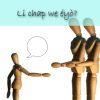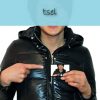We have exciting news! In Fall 2021 we will introduce our new and improved Stó:lō Shxwelí language website. Stay tuned for information about the launch; we’re looking forward to introducing the new site to you!
Éy swáyel!
Welcome to the Stó:lō Shxwelí Halq’méylem Language Collection. You can find language resources and stories for learning Halq’méylem. Just explore the menu up top, and keep coming back for updates and new posts!
Cedar Story
x̲epa:yelhp Kwulhithelh kwes xwel xwewata ye x̲alpayelhp, ílh ts’e lí te olu ey swíqe We yóth kw’es mamíytes wátes ó Wa lis q’alem kw’e stam, su a:m tutl’o. Lis stl’is kw’e stam, óxwes tes kw’e selhtel qas kw’e awkw’ Kwes kw’etslexwes te í te x̲ax̲e shxwelí Thet tutl’ò, tetha swíqe esáp te syoyes. Lis cha […]
Spáth qes te Slílk’yap-Teaching materials
These two handouts have the story prepared as a play. You can use figures, hand-puppets or felt-boards to act out the story with these scripts. You can also assign roles to students (bear, coyote, skunk and narrator) and put on a real play! You can find the story text in Halq’méylem to download below. It […]
Spáth qes te Slílk’yap
Letsáxw kwes ye ímex te spáth lhe’á te xálh. Yemí les em tútl’o te slílk’yap. Slílk’yap ew ímexosem ite ew tl’o ó xálh. Kwa kwes xwechómes yutl’ólem su tl’eléxw. Tl’ó te spáth e’qwál yewál, tl’ósu thé:t, “La éltha spáth qésu tl’o el swá te xálh.” Éwe lísi q’ál te slílk’yap, thé:t tútl’o, “Tsel Slílk’yap te […]
Doll Materials
You can follow this link for teaching materials around the ‘Doll’ story.
Crazy Painter
Crazy Painter is told by Ts’áts’elexwót, Elizabeth Herrling. This story helps with learning the days of the week, as well as colours.
Growing up on Seabird I
This is part of Ts’áts’elexwót (Elizabeth Herrling)’s life story.
Weaving
The Weaving story is told by Ts’áts’elexwót, Elizabeth Herrling.
Baby Bears
Baby Bears is a story told by Ts’áts’elexwót, Elizabeth Herrling.
Torchlighting
Torchlighting is a story told by Ts’át’selexwót, Elizabeth Herrling.
The Doll
This is a story told by Ts’áts’elexwót, Elizabeth Herrling.
ó:lhstexwes
ó:lhstexwes means ‘They (were) loading it’. ‘They’ and ‘it’ are both understood from context.

hóyòwèlh
Hóyòwèlh means ‘goodbye‘. You say this to the person whó is staying when you are leaving.
![Illustration for lámòwèlh - 'goodbye' [to say to the person leaving]](https://old.stoloshxweli.org/wp-content/uploads/2017/12/goodbye-1-100x100.jpg)
lámòwèlh
Lámòwèlh means ‘goodbye‘ or literally ‘go thee well’. You say this to a person who is leaving.

Li chap we éyò?
Li chap we we eyò? means ‘Are you folks well?‘ or ‘Are you guys doing well?’.

Tset we éyò.
Tset we éyò means ‘We (are) doing well’ or ‘We (are) doing good’.

tset
Tset means ‘we‘ or ‘us’.

Tsel we éyò
Tsel we éyò means ‘I am doing well’ or ‘I am doing good‘.

tsel
Tsel is the main word in the language for ‘I‘.
